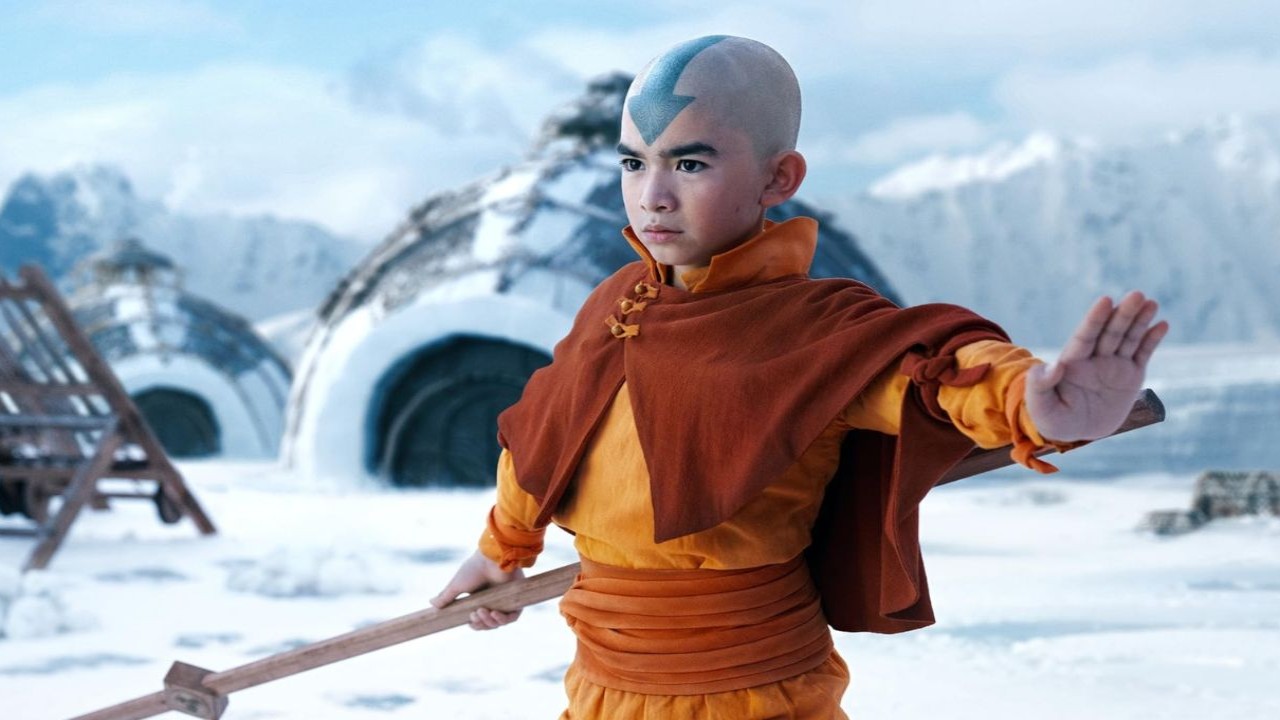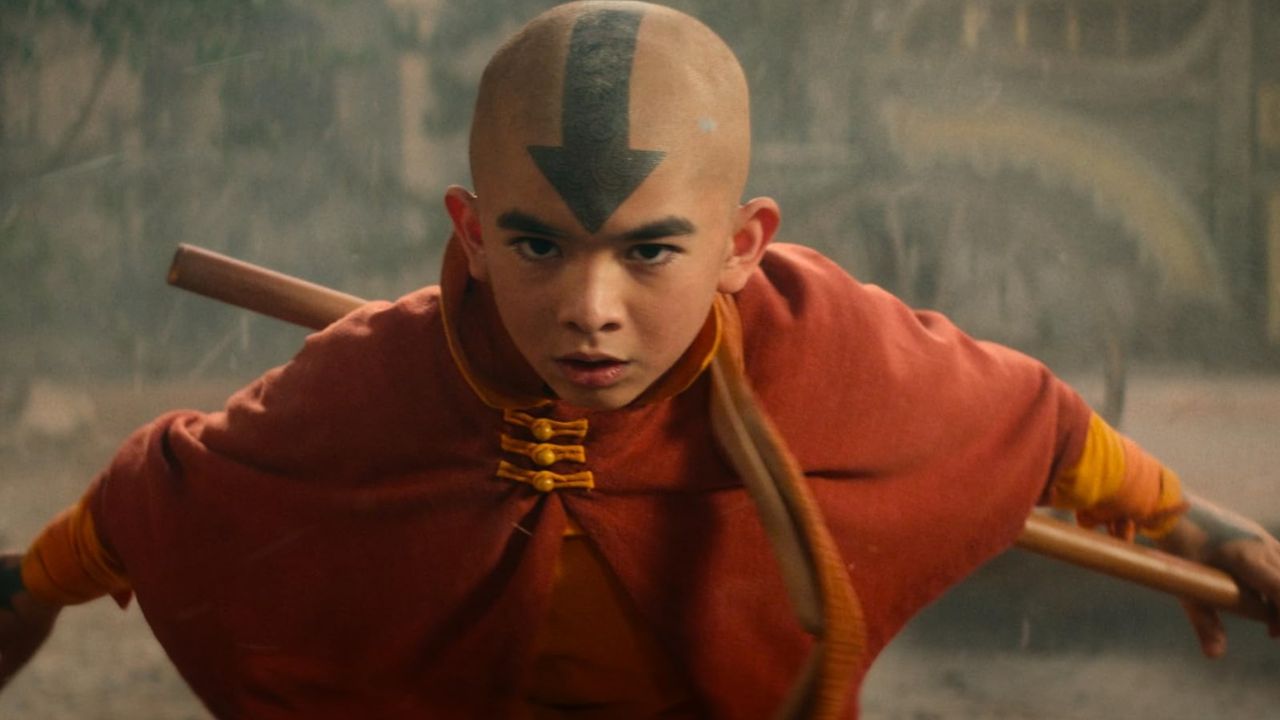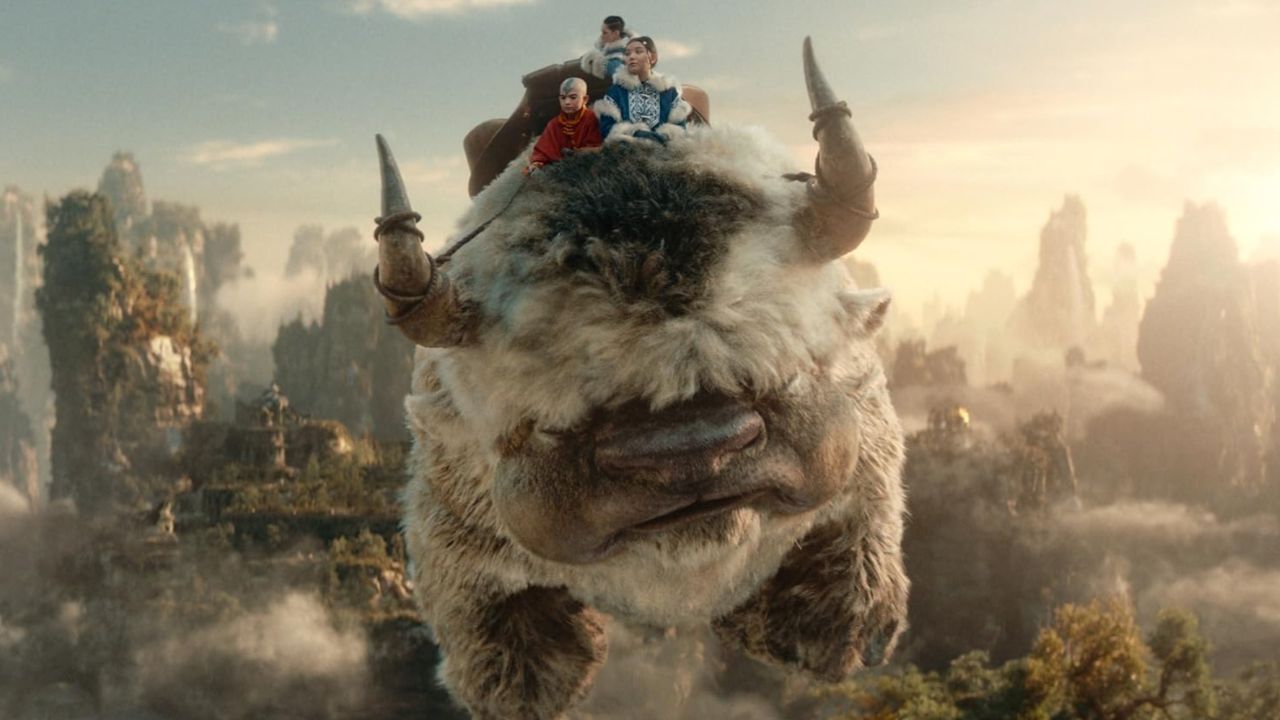Avatar: The Last Airbender Episode 4; Exploring The Heartbreaking Musical Callback Featured In The Netflix Series
In episode 4 of Netflix's Avatar: The Last Airbender, the show focuses on the tragic loss of Uncle Iroh's son Lu Ten, and pays tribute to the original animated series with a song called Leaves from the Vine.

In episode 4 of Netflix's Avatar: The Last Airbender titled "Into the Dark," the show takes a beat to focus on the cruel impact of war. It's here we learn of the tragic loss suffered by Uncle Iroh (Paul Sun-Hyung Lee), whose son Lu Ten died in battle. It's also the moment when the Netflix series pays homage to the original animated series with a song called "Leaves from the Vine." This was the first piece of music that was licensed for use from the original animated series, specifically for the scene described below.
Exploring the heartbreaking musical callback featured in episode 4
In the Netflix series, Avatar: The Last Airbender, a captive General Iroh faces an Earth Kingdom captain whose 19-year-old brother was killed during the Fire Nation's siege of Ba Sing Se. Iroh, a captive, absorbs the captain's hate but has a deeper experience with loss, having lost his own son Lu Ten during the same siege. Destroyed by his son's death, Iroh abandons the siege.
Following this face-off, Iroh has a flashback to Lu Ten's funeral. His nephew, Prince Zuko (Dallas James Liu), pays him a great kindness when he hands Lu Ten's medal, which had been gifted to Zuko by his cousin, back to Iroh for strength. It's a moment that bonds Zuko and Iroh deeply, and one that exemplifies their entire relationship.

To amplify the moment the score composed by Takeshi Furukawa and performed by the Synchron Stage Orchestra and Choir, transforms into an orchestral version of the song "Leaves from the Vine" as the camera moves towards the grieving Iroh. The song is adapted from Mako Iwamatsu's performance of Iroh in the first two animated seasons of Avatar before his death in 2006. Iroh sings the song as he marks his son's birthday by erecting a temporary memorial on a hill above the city where he died.
Leaves from the vine
Falling so slow
Like fragile, tiny shells
Drifting in the foam
Little soldier boy
Come marching home
Brave soldier boy
Comes marching home
It's not the first time we've heard it in the episode; Iroh sings it earlier to comfort a young boy crying in the street with his mother during a sweet, paternal moment. But when Iroh sings it for his own son, alone, it's a raw, melancholy moment, and one of the most poignant of the whole series.
The Netflix series score adaptation of Iroh's lament enhances the tragedy of the funeral scene and invites fans to revisit a forgotten memory. The inclusion of "Leaves from the Vine" in the adaptation solidifies Iroh's protective bond with Zuko, whose relationship with his father is abusive. The adaptation serves as an authentic and thoughtful inclusion, bringing the characters closer together.
Avatar: The Last Airbender receives mixed reviews
Nickelodeon's 2005 series Avatar: The Last Airbender was a successful anime-inspired drama that combined intricate world-building, Asian and Native culture references, humor, and plotted drama. It drew millions of viewers and received critical praise, introducing a rich, complete world with its own histories, myths, and traditions, making it a must-watch.

Netflix's "Avatar: The Last Airbender" follows the story of four nations, Air Nomads, Water Tribe, Earth Kingdom, and Fire Nation, who are "benders" who manipulate their elements. The Fire Nation has been fighting for a century, and the only hope for peace is the avatar, the sole master of all four elements. Two Water Tribe siblings, Katara and Sokka, discover a 12-year-old Air Nomad named Aang, and embark on a journey to complete Aang's training to save the world from the Fire Nation.
The adaptation condenses several storylines from the original into eight episodes, fusing narratives and making new connections between different locales. The creators, Michael Dante DiMartino and Bryan Konietzko, ensure that each subplot remains faithful to the original. The show also features carefully placed Easter eggs from the original, such as a background character's mention of the Avatar encountering "canyon crawlers" in an episode. The Netflix live-action adaptation also attempts to rework its stories, but the pacing often suffers due to the convoluted adventures and stacked action.
The adaptation of "Avatar" aims to condense several storylines from the original into eight episodes, utilizing economies in fusing narratives and creating new connections between stories set in different locations. The creators, Michael Dante DiMartino and Bryan Konietzko, ensure that each subplot remains faithful to the animated counterpart, even when moved or modified. The show also contains carefully placed Easter eggs from the original, such as a background character's mention of the Avatar encountering "canyon crawlers" in an episode, indicating the dangerous beasts Team Avatar faced in Episode 11 of the Nickelodeon version.
The Netflix adaptation of "Avatar" has lost much of its playful humor due to translation issues. The original animated children's show used reliable comedy tools, but the Netflix adaptation struggles to create its own comedic language for live-action. The art also leaves much to be desired, with unrealistic CGI backgrounds and visual effects, and transparent stunts filmed with excessive slo-mo. The show often appears silly, except for the elegant costume design by Farnaz Khaki-Sadigh and the notable exceptions of prop details and visual effects.





 JOIN OUR WHATSAPP CHANNEL
JOIN OUR WHATSAPP CHANNEL















































